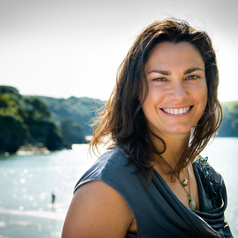|
For all that pollution still threatens people’s health, the air is a lot cleaner than it used to be in many parts of the world. In Britain, of course, we’re long past the days of the great smog of 1952 that saw London trapped in a thick layer of coal pollution for nearly a week. But in east Asia too – often accused of being one of the worst sources of airborne pollutants – a vast cleanup operation has removed 75% of sulphur dioxide emissions since 2013.
In a twist, however, new research suggests this could actually be making the world hotter than it otherwise would be. Laura Wilcox and Bjørn H. Samset used 160 computer simulations from eight global climate models to get a better understanding of east Asian global temperature and rainfall patterns. The results could help solve the mystery of why global heating has been speeding up since 2010.
Also today, we learn more about the Russian far-right group recently banned by the UK government that’s suspected of carrying out terror operations across Europe. And we debunk some popular “natural” skincare methods that can actually be pretty harmful.
|

|
Anna Turns
Senior Environment Editor
|
|

A traffic jam in Beijing in China, where air pollution has drastically reduced.
Hung Chung Chih/Shutterstock
Laura Wilcox, University of Reading; Bjørn H. Samset, Center for International Climate and Environment Research - Oslo
A new study shows how polluted air could have been masking the full effects of global warming.
|

A group of Russian nationalists waving Russian imperial flags during a protest.
Alexander Zemlianichenko Jr / Associated Press / Alamy Stock Photo
Dale Pankhurst, Queen's University Belfast
The British government has banned the Russian Imperial Movement, a white supremacist organisation seeking to create a new Russian empire.
|

Krakenimages.com/Shutterstock
Adam Taylor, Lancaster University
Just because it’s ‘natural’ and edible doesn’t mean it’s skin-safe. Raw garlic, chilli and turmeric can be far too harsh, unstable and irritating to use as skincare.
|
World
|
-
Stefan Wolff, University of Birmingham
Ukraine has been at war for more than a decade. The task of rebuilding the country and healing its people is likely to take even longer.
-
Nic Cheeseman, University of Birmingham
Zambia’s leadership is pushing to implement constitutional changes that civil society groups believe will preserve the ruling party’s dominance.
-
Pinar Dinc, Lund University
PKK disarmament could mark a new era for the Kurds, but the situation has regional implications.
|
|
Arts + Culture
|
-
Stephan Blum, University of Tübingen
The excavation of Troy’s rubbish is yielding arhceological treasure: how ordinary people lived several millenia ago.
-
Berna Akcali Gur, Queen Mary University of London
The all-women crew of Blue Origin reinforced the enduring connection between style symbolism, and space travel.
|
|
Business + Economy
|
-
Bing Han, University of Portsmouth
Sophisticated crime groups based in south-east Asia are stealing billions of dollars from victims each year.
|
|
Education
|
-
Michaela James, Swansea University; Mayara Silveira Bianchim, Bangor University
Autonomy, confidence and competence were stronger predictors of wellbeing than more traditional measures like deprivation or even total time spent being active.
|
|
Environment
|
-
Jenni Cauvain, Nottingham Trent University
Why wildlife crime and environmental damage should gain higher priority in terms of public attention, law enforcement and potential sanctions.
|
|
Health
|
-
Sandra Lucas, University of the West of Scotland
Food is more than nutrition, it can be a form of medicine rooted in ritual, comfort and care.
-
Catherine Meads, Anglia Ruskin University
More women are carrying embryos that aren’t genetically theirs – but few are warned about the risks.
-
Dan Baumgardt, University of Bristol
Summer’s here and so are the stings. From nettles to ticks to jellyfish, here’s how to treat (and avoid) the season’s most painful bites.
|
|
|
|
| |
| |
| |

|
| |
| |
| |
|
|
|
|
| |